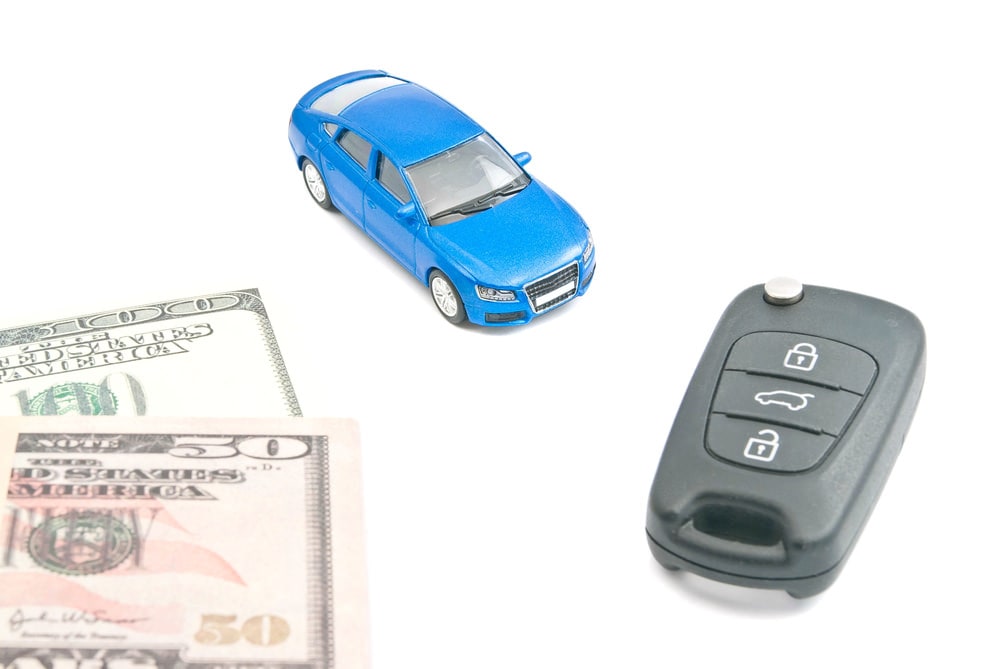

When it comes to purchasing a brand new car, the overall price will include much more than the sticker price. In most cases, the overall price of a new car includes local sales taxes, dealer fees, registration fees, and many other items listed in the fine print. As a smart consumer, you'll want to ensure that the bottom line price is well within your monthly budget if you're planning on financing this major purchase.
In order to ensure you are not blindsided when you enter the sales room of a dealership, here is a list of fees that are commonly included in the final cost of purchasing a brand new vehicle.
What are the Primary Dealership Fees?
Contrary to popular belief, the price on the sticker of a new car is not where dealerships make their money. In fact, most dealerships break even on the price of the vehicle (especially if they reduce the price of the vehicle to earn your sale). Their profit tends to be those 'dealer fees' you will see on an itemized invoice. These may be handed down from the manufacturer or be dealer-specific. They are required to be listed separately from the sticker price, and you'll find them on the invoice for your new vehicle. Some fees you may encounter include the following:
Doc fee: this is a fee for preparing and filing documents related to your purchase. Some states provide a maximum on this fee. Find out the limits for your state before you go in. It can range from less than $100, and up to $700, depending on individual dealership. Generally this fee is negotiable.
Advertising fee: This fee may be included in the invoice and come either from the manufacturer or dealer to offset advertising costs, with average cost between $100 and $400. This is another negotiable fee.
Delivery and destination fee – this fee is the cost to have the vehicle delivered from the manufacturer to the dealer. It averages between $400 and $1000.
Title and registration: The dealer will handle the legal requirements for establishing you as the new owner. The price is based on what the state DMV charges and is non-negotiable.
Dealer markup: This fee is in addition to the manufacturer’s suggested retail price as extra profit for the dealership. It's most often seen on popular vehicles which sell out quickly and runs around 20 percent of the dealer invoice price.
What are Optional Dealership Fees?
Many times, you will learn about other products available with your purchase of a new vehicle while you are in the finance office. These products come with fees, which will be included in the final price of the vehicle for financing unless you choose to pay for them upfront.
Extended warranty: An extended warranty is optional but provides coverage after the initial manufacturer’s warranty expires. The price can vary widely, with a range of around $1000 to over $2000, or even more for high-end vehicles.
Credit insurance: This is coverage to pay for the balance on the loan if you become disabled or deceased before the loan is paid. The cost depends on the loan amount and is not required by law, even though it may be required by the lender.
Prepaid maintenance: Some dealerships offer a prepaid maintenance plan for tire rotation and oil changes. The price depends on how long the maintenance period is set but can range from hundreds to thousands of dollars depending on what's included.
Always Factor DMV Fees Involved in a New Car Sale
The dealer usually takes care of the cost of title transfer, but you will be required to pay the sales tax on the vehicle you purchase. This is a percentage based on the purchase price, so it varies by state. You may also have to pay county and city taxes, depending on where you live. Your dealer will inform you about these fees. The sales tax may be included as a deduction when you file your taxes, which will help offset the cost.
Some states require you to pay an annual personal property tax on your vehicle for as long as you own it. Like the initial sales tax, it is a percentage but of the value of the vehicle rather than the purchase price. Over time, it will reduce as your new car depreciates.
What are the Special Fees Paid on New Car Purchases?
Some dealerships offer special deals for customers buying new cars. While these may sound appealing to you, beware that they usually come at an additional price.
Rustproofing: This is a treatment to protect the paint and undercarriage of the vehicle from rust. Consider the climate where you live and if vehicle rust is a prevalent issue. Prices range from around $200 to well over $1000.
VIN etching: The VIN is etched into the glass to help prevent theft, and make recovery easier if the car is stolen. Glass VIN etching can cost $200 or more.
Fabric protection: This treatment is designed to help prevent spills from staining upholstery, and it can cost $250 and up. Consider how you'll use your car, if you plan on drinking beverages in it, and if you'd mind cleaning up a spill yourself.
Paint sealant: A liquid wax used to protect your paint, which usually costs around $250.
Anti-theft system: A dealer-installed security system is designed to help prevent theft, but can easily cost $1000 or more.
Many times, you can find these services elsewhere for a reduced price. If you are interested in them, shop around ahead of time to determine if the dealer is offering a good price. When you consider buying a new car, truck, or SUV, make sure you are fully aware of the overall costs involved in making this major investment.



